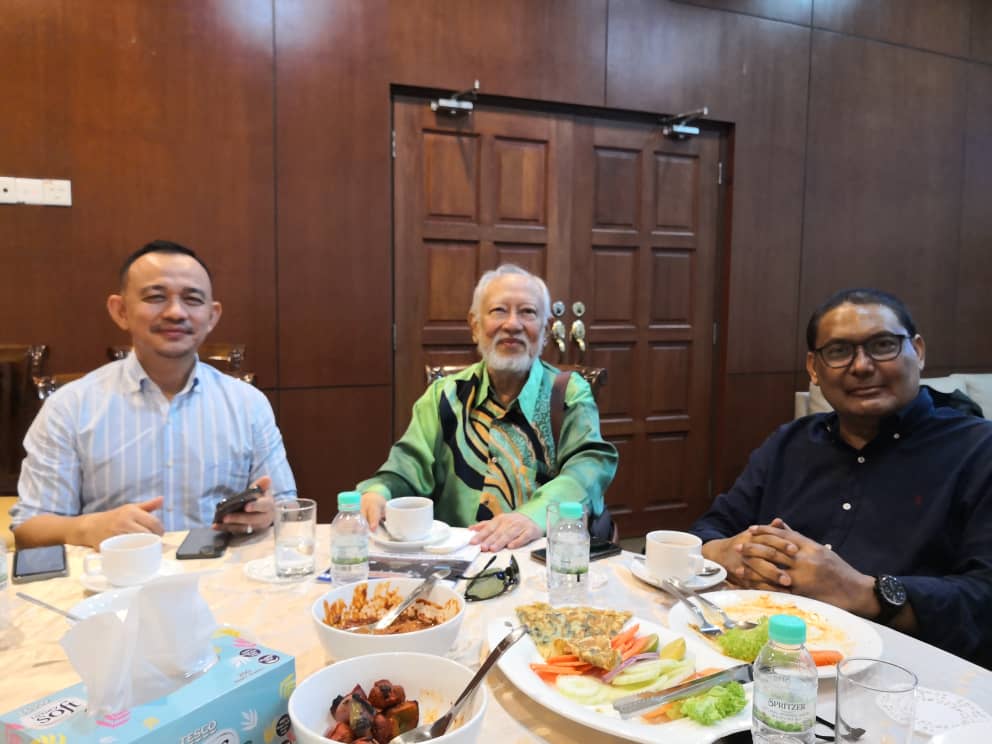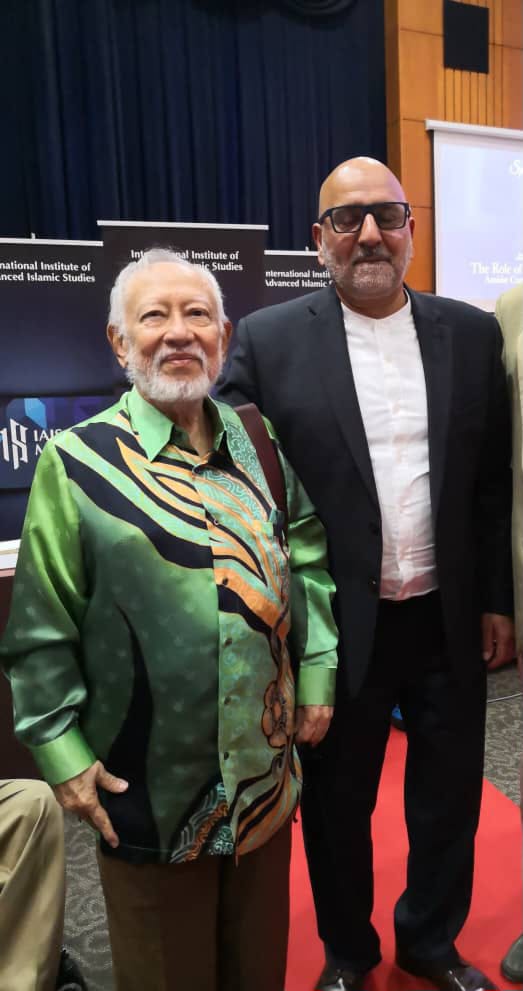
by Dato’ Syed Ahmad Idid

I dare say that the majority of students do not know about intellectuals; they think only persons with some schooling are! And they can be wrong. Can you be right?
It was therefore a session long-awaited when a topic on the “Role of Muslim Intellectuals” was set in motion at the International Institute of Advanced Islamic Studies (IAIS) recently.
More so when the sphere went across to current global challenges. The interesting session went on for two hours with some questions and answers thrown in for good measure.
The speaker was no stranger to Malaysia — Professor Dr Ebrahim Moosa, Mirza Family Professor of Islamic Thought and Muslim Societies, Keough School of Global Affairs, University of Notre Dame in the United States. He has been here a couple of times to share his profound knowledge with the International Institute of Islamic Thought and Civilisation (ISTAC) at the International Islamic University of Malaysia (IIUM) and other institutions.
His presentation was spontaneous. During this era where rapid changes, geopolitical shifts and cultural transformation occur with the blink of an eye, the role of Muslim intellectuals has compelling significance and indeed crucial in some countries.
History has witnessed the greatness of Muslim scholars. Yes, these were the intellectuals! Genuine and indeed towering.
Do we have them anywhere today? Or do we have reticent and reluctant “intellectuals” in high posts but with not much of brain power to propel them or their countries upwards to great heights?
What’s wrong? Is it the unfavourable environment? Or are there events that pull down good intellectuals endowed with brains and scholarship but still not willing?
Knowledge has no religion. Very simply, the distinguished speaker expressed a vital area: “knowledge is not confined”!
Knowledge, as many writers too have said, is everywhere. But why don’t people acquire knowledge?
There are impediments. Sadly, through law. Example: blasphemy laws. Such restrictions close the mouths and minds of scholars who want to remain alive or continue as an ordinary man in the street rather than shine for they fear they could lose their freedom, employment or families if they spoke out loud.
The speaker cautioned against segregating knowledge and then deciding “this is bad, that is useless or that other is no better…only because the minds cannot comprehend”!
He reminded the audience of the complexity of knowledge. It’s the intellectuals who search, research and collate old and new knowledge.
The speaker also mentioned about religious teachers. But he also alluded to the fact that some do not encourage questions. Reason is staring us in the eyes: they don’t know the answers as they are limited. They are afraid to be outdone by their students or peers. Hence: “No questions. No wrong answers”. And nobody is the wiser.
And he encouraged a diversity of thoughts. From here, we gained new ground in the sphere of human interactions and more inventions.
Look at China. In 50 years, China has eradicated poverty and pursued fresh innovations. That was why Prophet Muhammad (SAW) is often quoted as saying “Go to China in search of knowledge”.
It was a splendid session with half a dozen attendees asking sharp questions. I believe several were foreigners from Europe and USA. More sessions will help create more interest!